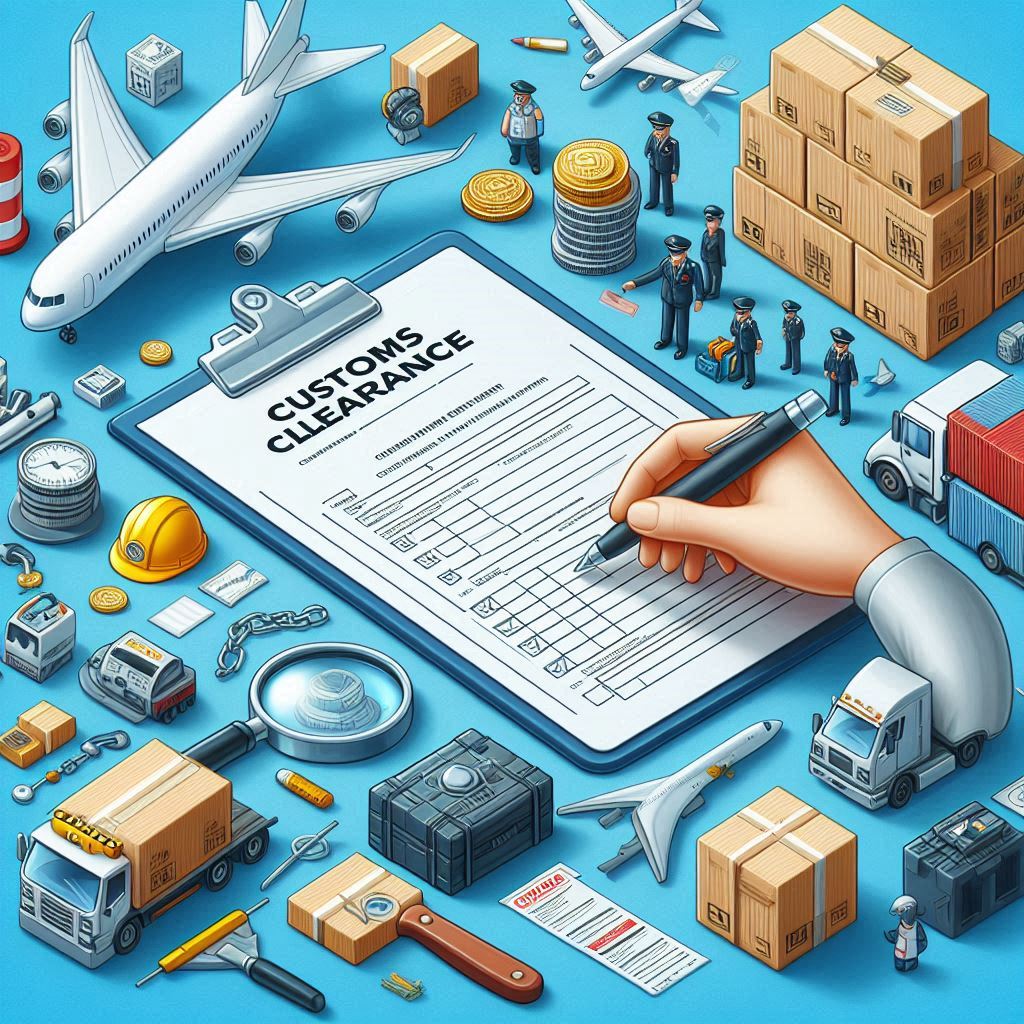In the intricate world of international trade, customs clearance is a crucial, yet often overlooked, component of the shipping process. Whether you’re a seasoned importer/exporter or a small business owner taking your first steps into global markets, understanding the importance of proper customs clearance can make or break your operations. In this blog, we’ll delve into why meticulous customs procedures are essential, and how they can significantly impact your business’s success.
The main job of customs is to regulate and facilitate the flow of goods across international borders. This involves enforcing laws related to tariffs, import/export restrictions, and safety standards, ensuring that shipments comply with national regulations. Customs also collects duties and taxes on imported goods, prevents illegal trade, and protects national security. By managing these processes efficiently, customs helps maintain order in international trade and supports economic and public safety interests.
What is Customs Clearance?
Customs clearance is the process of getting goods through customs so they can enter or leave a country. It involves submitting documentation and paying duties and taxes, ensuring that all legal requirements are met. This process is overseen by customs authorities who inspect shipments, verify compliance with regulations, and levy any applicable tariffs.
Subscribe to the Ex-works24/7 newsletter
Why Proper Customs Clearance Matters
Avoiding Delays and Penalties
One of the most immediate impacts of improper customs clearance is shipment delays. Goods stuck in customs can lead to missed deadlines, which can disrupt your supply chain and result in lost sales. Additionally, errors in documentation or failure to comply with regulations can result in hefty fines and penalties. By ensuring proper customs clearance, you minimize the risk of these costly delays and fees.
Maintaining Compliance with Regulations
Each country has its own set of rules and regulations regarding imports and exports. These can include specific requirements for product labeling, packaging, and documentation. Proper customs clearance ensures that you adhere to these regulations, avoiding legal issues and preventing potential confiscation or destruction of your goods.
Protecting Your Reputation
Delays and compliance issues can tarnish your reputation with customers and suppliers. If your shipments are frequently delayed or seized, it can create a perception of unreliability. Proper customs clearance helps maintain your business’s credibility and ensures that you meet your commitments to clients and partners.
Optimizing Costs
Effective customs clearance can also have a significant impact on your bottom line. By ensuring that all paperwork is accurate and complete, you can avoid unnecessary duties and taxes. Additionally, understanding and utilizing any available trade agreements or exemptions can further reduce costs, giving you a competitive edge.
Facilitating Smooth Operations
Efficient customs processes contribute to smoother overall logistics. By staying informed about regulatory changes and ensuring compliance, you can avoid disruptions in your supply chain. This helps in maintaining consistent product availability and meeting customer demands promptly.
Key Elements of Proper Customs Clearance
Accurate Documentation
Ensure that all required documents are accurately completed and submitted. This typically includes commercial invoices, packing lists, certificates of origin, and other relevant paperwork. Accurate documentation helps prevent delays and facilitates quicker processing.
Understanding Tariffs and Duties
Familiarize yourself with the tariffs and duties applicable to your goods. This includes knowing the correct Harmonized System (HS) codes, which classify your products for customs purposes. Accurate classification can prevent costly mistakes and compliance issues.
Working with a Reliable Customs Broker
Customs brokers are experts in navigating the complexities of international trade regulations. Partnering with a reputable customs broker can streamline the clearance process, as they can handle paperwork, ensure compliance, and provide valuable advice on regulatory matters.
Staying Updated on Regulations
Customs regulations are subject to change. Regularly updating yourself on the latest rules and guidelines from customs authorities in both your home country and your trading partners’ countries is crucial. This ensures that you remain compliant and can quickly adapt to any regulatory changes.
Effective Communication
Maintaining clear communication with your shipping partners, suppliers, and customs authorities is vital. Promptly addressing any issues or queries can prevent misunderstandings and facilitate smoother customs processing.
Conclusion: Proper customs clearance is more than just a procedural step; it’s a vital aspect of global trade that can significantly influence the efficiency and success of your business. By understanding the importance of accurate documentation, regulatory compliance, and the strategic use of customs brokers, you can confidently navigate international trade. Investing time and resources into mastering customs clearance protects your business from potential pitfalls and contributes to smoother, more cost-effective global operations. In the dynamic world of international trade, staying informed and prepared is key to maintaining a competitive edge and ensuring long-term success.
Frequently
Asked Questions
Customs clearance is the process of getting goods through customs so they can enter or leave a country. It’s important because it ensures compliance with local laws, prevents delays, and helps avoid fines or penalties associated with improper documentation.
Improper customs clearance can lead to delays in shipment, increased costs due to fines or additional taxes, confiscation of goods, and legal issues. These consequences can negatively impact business operations and customer satisfaction.
Proper customs clearance helps businesses avoid delays, reduce costs, and maintain a smooth supply chain. It also builds trust with customers and suppliers, as reliable import/export practices enhance a company’s reputation.
Required documentation often includes a commercial invoice, packing list, bill of lading, import/export permits, and any certificates relevant to the goods (e.g., health, safety, or origin certificates). Ensuring all documents are accurate and complete is crucial for smooth clearance.
Companies can ensure proper customs clearance by working with experienced customs brokers, staying informed about regulations, preparing accurate documentation, and implementing efficient logistics processes. Regular training and updates for staff involved in import/export activities can also help maintain compliance.




